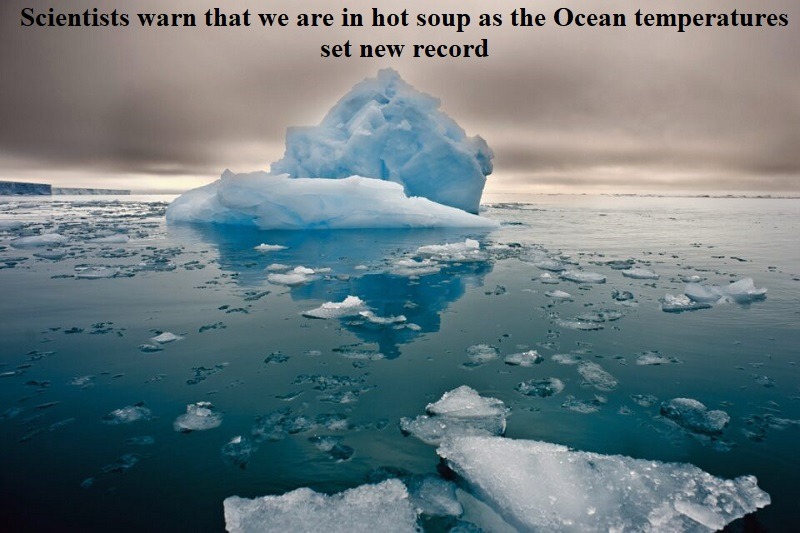
Climate change continues to have a steady impact on Earth’s warming, and scientists are now sounding an alarm over ocean temperatures, which have reached their highest ever recorded levels, according to the European Union’s climate change service Copernicus.
The global sea surface temperatures have surpassed the 2016 record, hitting 20.96°C, well above the average for this time of the year. During 2016, a record was set due to the naturally occurring El Niño phenomenon.
Oceans play a crucial role in regulating the climate, absorbing heat, producing half of the Earth’s oxygen, and influencing weather patterns. However, warmer temperatures can hamper these functions. As water heats up, it loses some ability to absorb carbon dioxide, allowing more of this warming gas to remain in the atmosphere. The warming of ocean waters also accelerates the melting of glaciers, contributing to rising sea levels.
The impact of hotter ocean water extends to marine life as well. Fish and whales tend to migrate in search of cooler waters, disrupting the food chain, and some species, like sharks, may become more aggressive.
Dr. Kathryn Lesneski, monitoring a marine heatwave in the Gulf of Mexico for the National Oceanic and Atmospheric Administration, compared rising water temperatures to a bath. She reported widespread coral bleaching and coral deaths in Florida due to warmer waters.
Experts are concerned about the timing of this latest record, as oceans are expected to be at their warmest in March, not August. This year has witnessed a series of marine heatwaves globally, impacting regions such as the UK, the North Atlantic, the Mediterranean, and the Gulf of Mexico.
The Intergovernmental Panel on Climate Change (IPCC) has reported that marine heatwaves have doubled in frequency between 1982 and 2016, becoming more intense and longer-lasting.
Recent temperature records include sea surface temperatures in Florida reaching 38.44°C, akin to hot tub levels, and water temperatures in the UK being 3°C to 5°C higher than average in June.
Scientists emphasize the urgency of addressing climate change and its impact on oceans, as the consequences of rising ocean temperatures can be far-reaching, affecting marine ecosystems, fish stocks, and weather patterns worldwide.

Post Your Comments